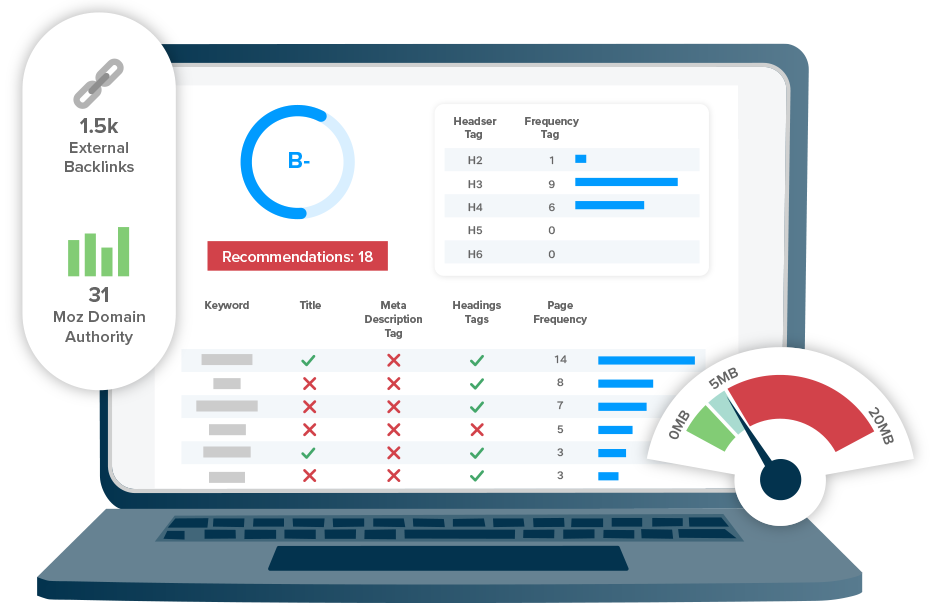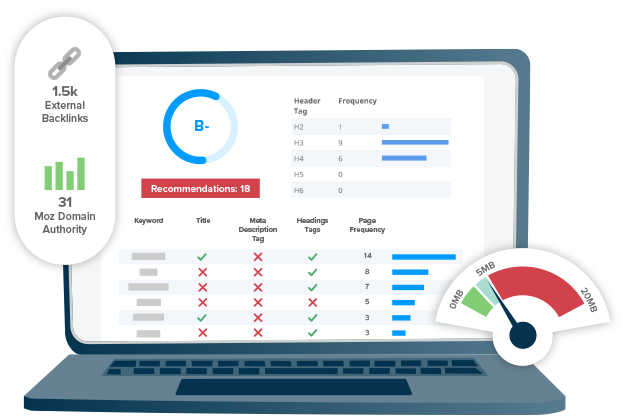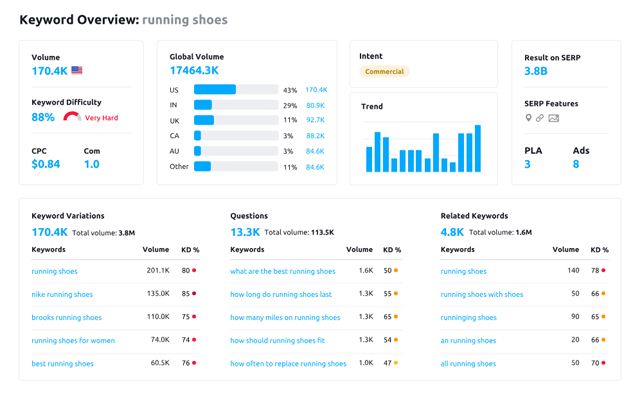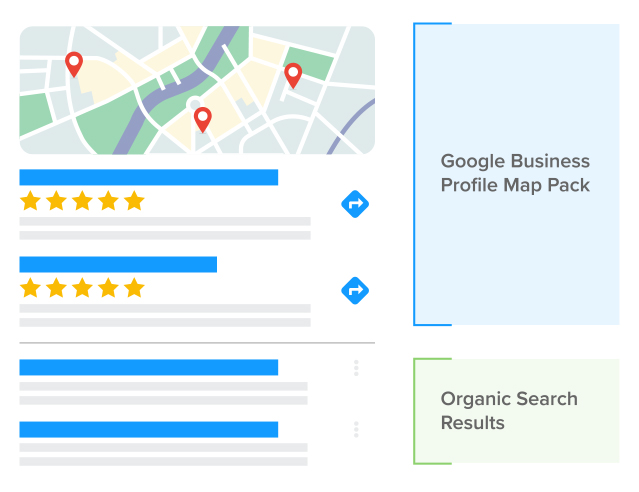SEO for Dentists
Learn how to achieve search engine success and attract more patients with our dental SEO guide for your practice – we explain search engine optimisation best practices to rank for your Google searches.
SEO for Dentists
Learn how to achieve search engine success and attract more patients with our dental SEO guide for your practice – we explain search engine optimisation best practices to rank for your Google searches.
SEO for Dentists
Learn how to achieve search engine success and attract more patients with our dental SEO guide for your practice – we explain search engine optimisation best practices to rank for your Google searches.
The online landscape is continuously evolving, and businesses that don’t adapt will quickly fall behind their competitors.
The same is true for dentists – any who don’t embrace the digital age or effectively implement dental marketing techniques will see their practice struggle to capture their target audience’s attention.
A hugely important aspect of your digital marketing strategy is SEO (search engine optimisation); in our helpful guide below, we explore dental SEO and how it can hugely benefit your practice.
What is SEO for dentists, and why is it important?
SEO for dentists is optimising your dental website for search engine optimisation to improve your site’s visibility in the organic search results. These updates include keyword research, publishing trustworthy content and creating local business listings for your business.
The higher your website ranks, the more likely people will find your services and visit your page, leading to more organic traffic.
For example, when a potential patient searches; ‘dentist near me’, ‘emergency dental practice’, or any other combination of dental search terms, a successfully optimised dental strategy will help your practice appear on the first page and in the top search results.
The main aim of your SEO strategy is to capture new patients for your practice, boosting your client base and online exposure for your business – turning curious site visitors into regular customers.
If your dental website is not SEO-optimised, you will likely be positioned on page 2 or 3 for your search terms, resulting in fewer patients and income for your practice.
Why do dentists need SEO?
A strong SEO strategy offers excellent benefits for your dental practice, including –
- Increased exposure for your dentists, ranking your pages above your competitors
- Increased organic traffic and clicks to your website, providing more opportunities for dental appointments
- Well-implemented SEO strategies will translate into a better website user experience
- A healthy boost to your local brand awareness
Advantages of SEO for dentists
There are many advantages of dental SEO for your practice, including –
- Improves your ranking and grows your organic traffic
- Establishes trust and credibility with your patients
- Generates more quality leads and patients
- Enjoy higher engagement and conversion rates
- Attract new patients looking for the exact services you offer
The importance of local SEO for dentists
Local SEO will enable your dental practice to reach more people in your area. As more users research new dentists in their area, your practice must have a local presence online to capture their attention. Investing in local SEO will help new patients find your dentist and become new customers for your business.
There are many benefits, including –
- Increased organic traffic and local leads
- A revitalised local brand presence
- Higher ranking on Google Maps and Google Search
- Opportunities to receive positive reviews from happy patients
Our SEO services for dentists
Competitor Analysis
A key part of SEO for your dentists is identifying and analysing your competitors; once you understand how they run their digital marketing, this will direct your SEO strategy.
LOCALiQ’s analysis will guide SEO techniques, from content ideas and successful keywords to their targeted backlink strategies and link opportunities.
Technical SEO Audit
Technical SEO analyses the technical elements of your website, ensuring your pages run at peak performance for online visitors to your dental practice.
By partnering with our dental SEO agency, we will improve your site speed so your page loads quicker than anyone else across desktop, mobile and tablet.
We will also review your indexing, sitemaps, redirects, broken links, internal link structures, crawl errors, HTTPS and more.
How to get started
- Audit your website – audit your website for free with LOCALiQ’s SEO Audit Tool.
- Check your health score – score your online presence (website, advertising and analytics, social media and more) and receive actionable areas for improvement.
- Investigate and fix any technical issues – easily make changes and achieve great results online for your dentists.
Download your free report today: LOCALiQ’s SEO Audit Tool
Keyword Research
Keyword research enables us to find suitable keywords for your website, showing us the content your audience is searching for and the specific search queries related to your website.
These search queries will guide the content creation for your website, optimising your content using the selected keywords so you rank highly within the search engines for your target audience.
Discover dental-related services and popular-related topics your customers are searching for with SEMRush’s Keyword Magic Tool. Generate keyword ideas, estimated monthly search volumes and many SEO metrics from their comprehensive keyword database.
How to get started
- Enter your industry-related phrases into the keyword magic tool – dentist, dentists, emergency dentists, dental backup.
- Choose “broad match” keywords – this will show you keywords and questions containing your selected phrases.
- View your keywords & their metrics – analyse different keywords by their monthly search volume and difficulty (KD %).
- Save your keywords – save your selected legal keywords into a SEMRush project so you can view them quickly and easily.
Image source: SEMRUSH
Optimising your GBP Listing
Updating your Google Business Profile (previously Google My Business) is crucial for your dentists.
Using local SEO techniques, we will attract local patients to your practice by ensuring your contact information, categories, images, and videos are up to date, displaying the unique aspects of your dental clinic.
We will also encourage your customers to leave positive reviews on your profile.
Give your Google Business Profile a head start on Google by ranking in the organic search results and “map pack”. To do this, you’ll need to optimise your website, but to rank in the “map pack”, you’ll need to optimise your Google Business Profile – we explain how below.
How to get started
- Set up your free Google Business Profile.
- Optimise your profile – complete as much as possible, including the types of dental services you offer to client testimonials.
- Get reviews – reviews will help you rank higher, so ask customers to review your practice.
Learn more with our free resource: A Guide to Local SEO
Optimising your content
Content is king, as we say. Your copy influences the success of your dentists online; hand in hand with keyword research, your content will attract potential patients and high-quality leads when working with LOCALiQ.
But that’s not all; the content on your website should be able to provide answers to any questions a potential client might have regarding your services.
We recommend you make your dental topics easy to understand by breaking them down into clear, concise copy that connects with your audience. Use subheadings (H1, H2s, and H3s) and bullet points to prompt readers to delve deeper.
Search engines are constantly looking to send users to the best place possible for answers to their questions. So, if Google thinks your site will fulfil the user’s intent, it is more likely to feature your website higher in its search engine results pages.
SEO top tips for dentists
1. Keep your website up-to-date
Searching for dental services has never been easier, your website will need to rank well to stand out from your competition. View our quick tips below for a head start:
- Aim for (at least) 500 words on your homepage
- Include your address and contact details on each web page (the footer is a place to start), updating these for your location-based pages
- Include a title tag, H1 header, meta description, and image alt text and title on each web page
- Add a search bar (if applicable) and links to your social media channels
2. Target local keywords
Ensure your dental practice reaches its full potential by targeting local keywords; they will increase your chance of appearing within the local search results when someone in your area is looking for dental services.
These include words and phrases like “dentist in Manchester’, “emergency dentists in Bournemouth” or “root canal services in Worcester”.
Keyword research tools will help you find the right local keywords for your practice; SEMrush is a great place to start for your SEO strategy.
Not only will targeting local keywords help you reach more patients, but it will also help you appear more relevant to search engines, a key factor for SEO and increasing your position in the online results.
3. Optimise your content to include your new keywords
Now you’ve found which keywords and phrases to use – it’s time to optimise your content with these keywords. Using the correct density for your keywords can help to increase the organic traffic to your website. We recommend:
- Maintaining a keyword density of 2%+ for your landing pages and 1%-1.5% for your articles
- Adding your target keyword within the first 100 words of your content
- Optimising your title tag, subtitles, meta description, etc. for keywords
- Adding your primary keywords to your web page URLs
A helpful tool to quickly review your keyword density is SEOquake; download the plug-in to your browser and review your keyword density for your web pages.
4. Promote your services with location-based keywords
As discussed above, you must identify which local keywords to rank for to improve your local SEO. Once you’ve compiled your list of location-specific keywords, it’s time to add them to your website copy.
We recommend using keywords such as root canal, teeth whitening, porcelain crown, and the names of your treatments, services and products you offer within your practice.
Long-tail keywords are a place to start from a local SEO perspective; for example, “root canal in Brighton” or “teeth whitening in Liverpool” will give you more relevant and quality leads from nearby patients when compared to targeting broader keywords such as “dentist”.
Another effective tactic is to utilise your blog with internal links to your service pages; for example, a dedicated pillar page can promote your dental expertise and, at the same time, link to subpages covering each of your services.
5. Optimise your website
Once you’ve optimised your content for relevant local keywords, you will need to ensure you update your pages across your website. We recommend:
- Your blog posts are at least 800 words
- Each post includes a primary keyword in the title, headers and copy
- Each post contains your contact details (address, phone number and email)
- You add internal links to other pages within your site
- High-quality images and videos are included, with relevant alt texts, titles & descriptions
- You embed your Google Business Profile map, displaying where customers can find you
Remember to optimise each post, including your contact details, title tags, meta descriptions, and high-quality images and videos with relevant alt texts. It’s good practice to include an embedded Google Business Profile map, displaying where customers can find your practice.
Learn more with our free resource: Best Practices for Optimising Anchor Text for SEO
6. Create video content
Video content is another tool for improving the SEO of your dental practice – video enables your customers to learn about your services in an engaging, easy-to-follow format. For example, we recommend sharing your best tips for effective teeth cleaning using helpful tutorial videos, these can be shared on your social media channels too.
The SEO benefit is your customers will stay on your site for longer as they watch your content, indicating to search engines they are enjoying a positive experience on your website, promoting you as a trustworthy practice with valuable content.
7. Claim your Google Business Profile
As we mentioned earlier, your Google Business Profile is hugely important for your dental practice and – if you’ve not done so already – you will need to claim your business listing online.
Your Google Business Profile will help your organic traffic and make your business easier to find for any local patients who wish to view your dental services.
When setting up your profile, ensure your contact details, categories, opening times, images, business description, and client testimonials are advertised correctly. We also recommend you use the same NAP (name, address and phone number) format across your profile and website and encourage your customers to leave reviews.
8. Implement schema
Another tip is to implement schema into your website. Unsure what schema is? Schema mark-up is an additional website code which helps the search engines and site crawlers better understand your content. Schema will tell the search engines what your data says and what it means.
For example, schema mark-up can help search engines understand the number listed on your website is a phone number or identify your customer reviews and their rating of your dentists.
Google will view your schema positively and rank you higher than competitors who don’t include schema mark-up, improving your click-through rates. Often overlooked, this is a quick win for your website to help boost visibility.
Learn more with our free resource: What Is Schema Markup and How Does It Help SEO?
9. Join the online directories and dental review sites
Online directories are a great way to boost your backlinks and search engine ranking. Gaining backlinks is widely encouraged within SEO as they build Google’s trust in your site and offer an alternative way for patients to find you online.
We recommend targeting dental directories specific to your industry, helping you connect with customers searching for dental services. There are many online, with several paid-for and free sites available for your business, including Dentists in UK, Dental Guide, Dentist Directory and Local Dentist.
Alongside these, there are many dental review sites you should join, including What Clinic, Review Dentists and Dentist Finder. The more positive reviews you receive, the more likely you will attract new patients.
Like before, include your address and contact details and ensure the information is consistent with your Google Business Profile.
Learn more with our free resource: What Are Local Listings and How Can You Use Them to Market Your Business?
10. Increase the number of backlinks linking to your website
As we explained previously, receiving backlinks from trusted websites is crucial to improving your website’s ranking. Links from other high-authority websites will show Google your practice is trustworthy and boost your position within the search engine results pages (SERPs).
- Submitting articles to dental directories
- Publishing a guest post on other dental healthcare blogs
- Answering dental-related questions within online forums
- Leaving helpful comments on other dental-related websites
- Contacting other websites and requesting a link to your content
Learn more with our free resource: What Is a Backlink? And How to Gain Them to Improve SEO
11. Ask for Google reviews from your customers
Most of your patients will read online reviews, and many will form an opinion of your practice based on the experience your previous patients received. To help enhance and safeguard your reputation, we recommend inviting your existing customers to provide feedback on your business.
Then, after each sale, it’s worth contacting your patient to see if they are satisfied with their service. If their feedback is positive, ask them to leave a review on your Google Business Profile to boost your star rating within the search engine and entice more leads.
Learn more with our free resource: 10 Ways to Generate More Online Reviews for Your Business
12. Ensure your website is mobile-friendly
Mobile devices have revolutionised how we search for products and services online, especially for location-based searches.
A mobile-friendly website will help you stand out from competitors and improve the user experience for anyone who visits your website via mobile and tablet.
Learn more with our free resource: 7 Tips to Improve Your Mobile-Friendly Marketing Strategy
13. Create location-based pages
If you have many dental practices, creating location-based pages for local searches in their area is an excellent way to boost your brand exposure. These pages can include popular keywords and up-to-date contact information for each dentist.
Once published, list your physical locations within Google Profile Manager to boost your local SEO for each area.
Need more help with SEO for your dentists? Our award-winning team are waiting to hear from you. Visit our SEO page to find out more and discover our many SEO services.

Free SEO Audit

Evaluate your SEO performance with our FREE audit.
Get a complete overview of optimisation opportunities and uncover the actions you need to take to scale the SERPs.
- On-page SEO
- Links
- Performance
- Usability
- Social
Speak to an expert.
Start simplifying your digital marketing today. Get in touch to discuss how we can help you.




